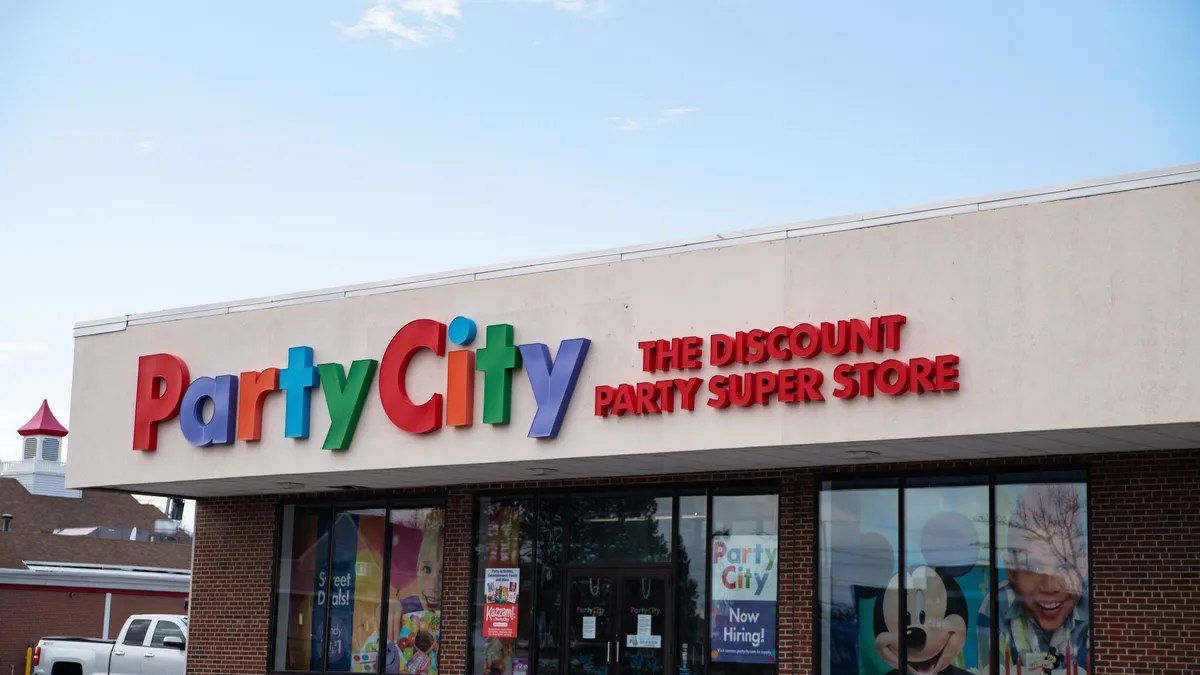Dive Brief:
-
Fitch on Friday further downgraded Party City to CCC from B-, citing “rapid deterioration” in Party City's operations and liquidity and calling its capital structure “likely untenable.”
-
The agency’s rating case assumptions indicate that Party City “will generate significant negative free cash flow” this year with limited liquidity to cushion any further operational missteps, according to the note, which was emailed to Retail Dive.
-
Next year won’t get any easier, as cost pressures are likely to persist at least through the first half, Fitch analysts said. With Party City unlikely to improve operations before its 2025 maturities, some type of restructuring has become more probable, per their note. The company last month landed on Retail Dive’s bankruptcy watch list.
Dive Insight:
Party City is in a race against the clock, with debt maturities looming and little prospect of macroeconomic pressures easing in time. The company saw some sales recover as parties resumed after pandemic lows, but the retailer also faced helium shortages and inflated operating costs. But Fitch analysts said that operational stumbles are also to blame.
“Party City's financial results have steadily weakened in 2022 despite a flattish topline performance, driven by meaningful margin deterioration due to supply chain challenges, rising input costs and mis-execution,” per the note.
The party goods retailer, which also runs specialty Halloween locations seasonally, last week lowered its sales outlook for the year and said its losses could grow significantly, reaching net loss of as much as $199 million, up from its previous high-end estimate of $36 million.
The company is scrambling to cut costs by $30 million, last week announcing that it will reduce its corporate workforce by 19%, through layoffs and leaving open “a significant number” of open slots. Party City operated 149 Halloween City stores, up from 90 last year and 25 in 2020, but well below the 275 it opened in 2019. For the third quarter (which ended Sept. 30), Party City’s net sales fell 1.6% to $502.2 million.
Fitch estimates that Party City must generate some $150 million in EBITDA to service its interest expense and annual capital expenditures. The analysts noted that it could exceed that “over the next several years, but the timing and confidence in this turnaround is uncertain and the company will also need to address its 2025 and 2026 maturities before they become current liabilities.”















